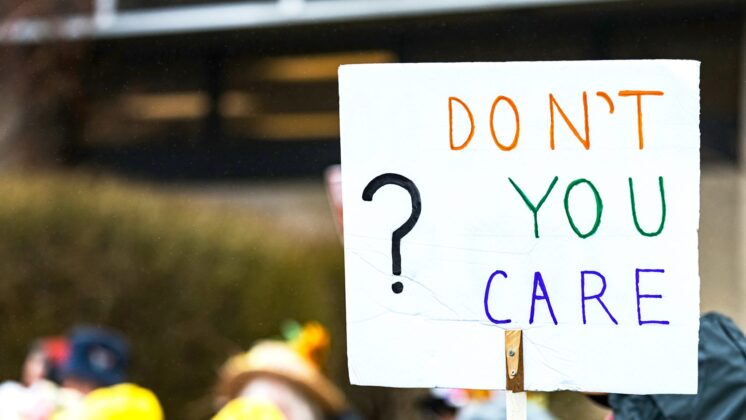Climate change is a global problem, but many agree that there isn’t enough action and contribution worldwide. There are a lot of reasons, including national, economic, and growth priorities; power struggles among nations; and pre-established systems that lead to a lack of political willpower. But whatever the reason, political complacency by the few has angered the many. People who are looking for visible change have turned to a life of activism to make their voices known. Activism isn’t a solution to the problem, but it is a channel to aggregate and amplify concern for the issues at hand.
Like many, I became interested in climate activism thanks to a single child leader: Greta Thunberg, the originator of Fridays for Future (FFF). Watching this movement as it quickly became a global phenomenon, I became eager to play my part against climate change.
But what is the state of climate activism in Japan?
To find out, I met with Yoshiko Ichikawa, the organizer of an event run by Extinction Rebellion (XR) Japan last September.
Climate Activism in Japan
Like many climate activists, Ichikawa has had her own experiences with government complacency:
“I attended a FFF meeting to urge the Tokyo Assembly to declare a climate emergency in Tokyo. For most of the meeting, the standard response was, ‘I am not a specialist in the matter of climate change.’ It felt like they were making excuses to avoid commitment. By the end of the meeting, one of FFF members asked, ‘What are you living your life for? Without your power, title, and wealth, what do you believe in?’”
The response? Well, there wasn’t one. Ichikawa had expected at least something generic or cliché. Instead, she was met with silence.
“As long as such leaders are the majority,” Ichikawa says, “this problem will not get solved.”
Why is Japan’s response to climate change so passive?
One possibility is simply resistance to change. Governments all over the world have invested a lot into their existing systems. New systems, even if they bring greater sustainability, would require a lot of effort and willpower—or, as Ichikawa puts it, “strong ethical and moral leadership…pressure from grassroots movements.”
Further complicating the need for change is the need for people to assemble, and that’s no small measure when it comes to Japan. People who choose not to act fall into two categories: those who are not aware of the threat of climate change and those who are aware, but choose not to act.
“Initially,” Ichikawa says, “I thought lack of awareness was the sole cause of people’s inaction, but now I feel like there are people who are aware, but carry a sense of willful ignorance. They choose to deny the situation.”
At the moment, Ichikawa and her fellow activists are focusing on the unaware general public. Efforts in Tokyo are coming mainly from three organizations: FFF, XR Japan, and 360.org. Climate activism is indeed a spectrum, but grassroots activities of climate activists generally fall into three categories:
1. Demand climate action from governments and entities in power
2. Raise awareness among the uninformed about the threat of climate change
3. Hold a dialogue with the climate change deniers to get consensus on the problem
FFF appeals to a broader audience thanks to the popularity of Greta Thunberg. 360 is more focused on realizing corporate action by appealing to end fossil fuel usage. XR is a civil disobedience movement for people who have a sense of urgency and prefer bold actions.
XR Japan Rebellion through Art
“[XR Japan] is quite new,” Ichikawa explains. “Our first action was initiated in September 2019. Social movements in Japan are generally not strong. Even in XR Japan, most of the members are actually foreign students!”
So how is XR Japan spreading its roots?
The organization’s immediate priority is to focus on raising awareness among the Japanese through bold displays of art, such as the Red Brigade March.
“Recently there was an art piece which ignited a nationwide discussion. It was an inspiration for me. I am an artist, and I believe that art is a universal language, so I want to use bold artistic demonstrations to appeal to the Japanese people and at least ignite a discussion.”
Despite the differing approaches to our climate change problem, the passion of climate activists is both clear and inspiring. It’s hard to resist the urge to know more about them, their amazing leaders, and their dedication to saving the Earth on behalf of all of us.



